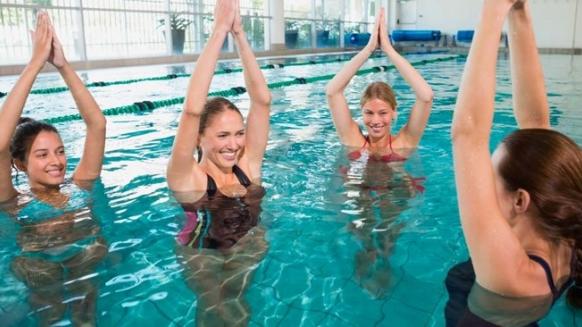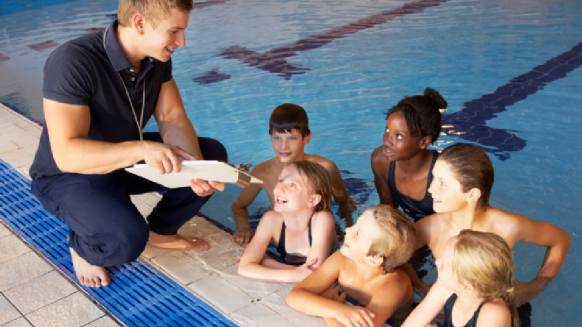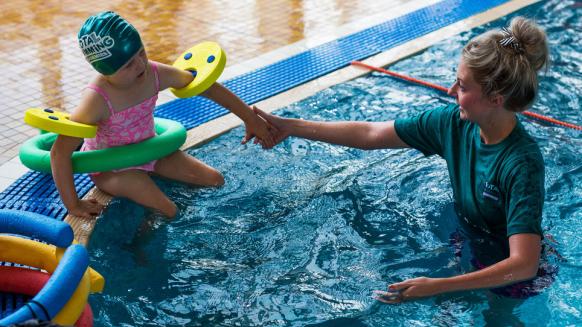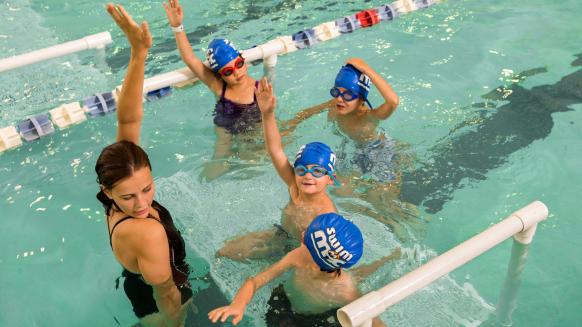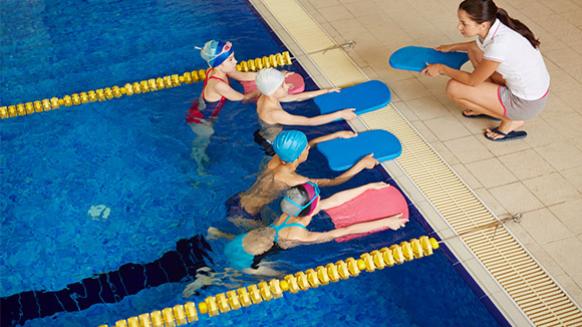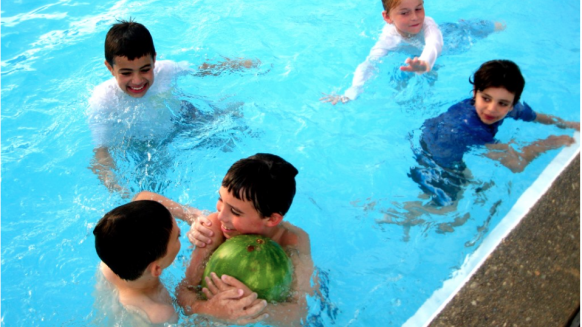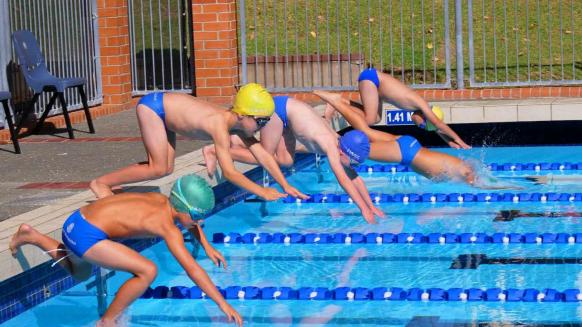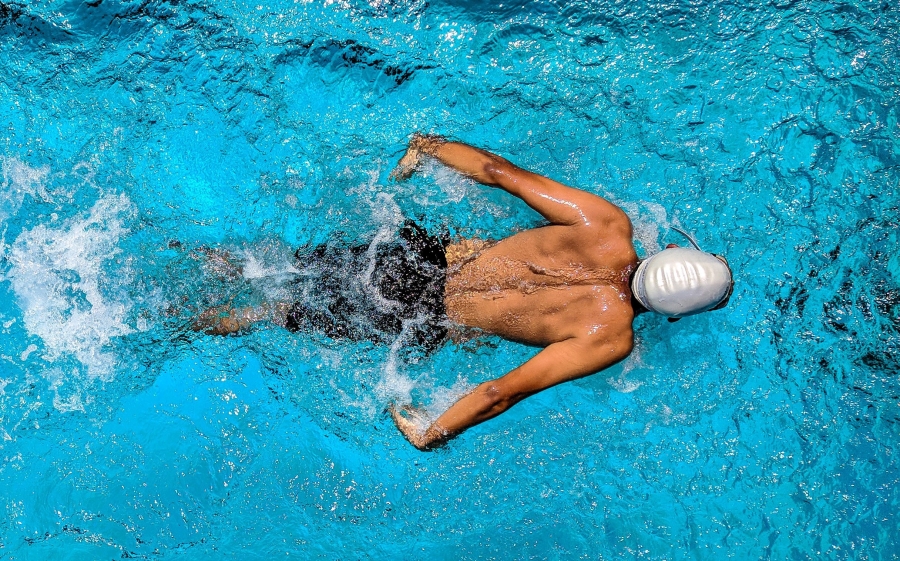
Learning how to swim is an essential part of growing up. But that doesn’t make it easy to do. Like any life skill, swimming takes repetition, practice, dedication, and motivation to become second nature. And like any life skill, it can be infinitely draining too. Lack of swim motivation is one of the biggest driving factors behind why students quit their swimming lessons.
For swim school managers, the understandable lack of motivation in students can halt them in their progress and lead them to leave their lessons and training early, heightening a school’s churn and causing knock-on financial issues due to the drop in projected revenue.
No one wins.
Which is why it is important to keep students motivated when it comes to their swimming sessions.
Being motivated means working toward a bigger goal, a bigger purpose. Having a purpose is what drives people, it’s one of the reasons why we have careers, children, and partners. Drive-up swim motivation in your classes by:
- Building student/instructor rapport
- Leveraging peer mentoring and class grouping
- Organizing swim school events
- Implementing swim challenges
Step 1: Build Student/Instructor Rapport
Building rapport with students can pave a two-way relationship conducive to a child’s swim goal. From an instructor perspective, becoming more open and approachable will make students receptive to instruction and direction. Enhancing rapport also gives an opportunity for swim instructors to position themselves as an inspirational figure for their students, allowing them to generate higher swim motivation in the long term.
From a student perspective, having an approachable swim instructor can encourage students to take control of their own learning and ask for help when they feel they are struggling, fearful or bored. This way students will have more space to focus on themselves and communicate honestly how they are feeling about swimming without fear of reproach. Both the instructor and student are then more motivated to work together and increase focus and skills.
Clear Activity Direction
Everybody learns and trains differently, some people are auditory learners and others visual, but it’s important to take these differences into account in order to ensure all students understand the swimming activity directions given.
If swim school students are spending the majority of their lessons feeling confused and unsure, it can lead to a bad learning experience. Not only can this block a student’s progress and lead to a dive in swim practice motivation, badly communicated directions can make students associate swimming lessons with feelings of doubt and confusion in the future, too.
To increase swim student motivation, instructors need to articulate their directions clearly and leave room for questions. One way instructors can improve their activity direction is by getting to know their students better through having a pre-joining interview with student and parent. Instructors need to understand that their students are more than just swimmers, when a student joins a facility to learn and train in swimming, it doesn’t mean their needs as learners become any simpler.
With more knowledge on their student’s responsiveness to learning, swim instructors will be better armed in directing their swimming activities, ensuring each student understands fully what needs to be done.
Introduce Educational Games
Swim lessons are serious and students require discipline when in the pool. However, instructors can also add some fun to their lessons by mixing up their structure and adding some educational games in their swim sessions.
Swimming games are a powerful method for shifting a student’s perspective on learning how to swim. The majority of the time swimming students, especially the younger ones, tend to fall out of love with lessons when swimming becomes tedious and chore-like for them.
Having fun is a great way to relieve stress and also build important non-swimming attributes such as social skills and confidence. Using games can help students hone their swimming technique in a natural and elevated mood set, and this will serve them well when it comes to overcoming more challenges later on in their swim schooling.
Implementing even a few minutes of swim games in your school’s classes will incentivize students by giving them something to look forward to in their lessons. The balance between fun and focused learning needs to be struck however to ensure teaching is still effective.
Within a game, the instructor and students are both placed into a play mindset, which makes both parties more open, willing and receptive to one another, thus helping increase student-teacher rapport and swim motivation.
Give Specific Feedback
Providing relevant and structured feedback in class to individuals can elevate student engagement and spur them to do better.
Just like lessons which need to be structured with a lesson plan, swim lesson feedback should also follow a consistent format in order to keep it focused. For effective feedback sessions, instructors should give points of advice which is both corrective and encouraging.
The balance of corrective and encouraging feedback is important for swim practice motivation. For students, especially de-motivated students, hearing specific praise about their attitude, swim style or behaviors can really build up their confidence in the pool and this will make them more open and responsive to taking on criticism, too.
Corrective feedback helps to personalize swimming lessons for students, giving them an achievable target to work on which they know will be helpful to their learning. In addition, feedback given on a one-to-one basis can help learners focus more on improving, as they don’t get distracted by observing the progress of others.
Encourage Self-Assessments and Goal Setting
Having a goal to work towards is hugely motivating for swim students. While instructors setting goals directly for students is more efficient, it can be more powerful when instructors teach students how to tap into their strengths and admit their weaknesses.
By fostering a non-judgmental atmosphere in classes, instructors can provide enough comfort for their students to look inwards and critically assess their own skills.
When it comes to feedback sessions or goal setting, having the instructor act as a guide, rather than a leader, encourages swimming students to take ownership over their own learning when they set their own goals and targets. This way they will become more committed to their aquatic education and this will help elevate their swim motivation in the long term.
In this process, it is important for students to look at their strengths just as much as their weaknesses. By articulating what strengths they have, students can acknowledge their talents and appreciate how far they have come. Viewing their own progress is hugely motivating for swim students as it shows they are indeed capable of overcoming challenges. With this mindset, students will be energized to search for and improve their swimming weaknesses.
Step 2: Leverage Peer Mentoring and Class Grouping
To add an extra coat of swim motivation in classes, teachers can also try to experiment with some peer mentoring.
With young students, the hierarchical swim instructor-student relationship can be a boring and monotonous way to learn. Instead, encourage teamwork in classes by grouping students and encouraging them to help one another during activity time.
Grouping or pairing weaker swimmers with stronger swimmers not only generates a tighter-knit swim class and creates friendships, but it also challenges stronger swimmers by giving them a higher purpose and focusing their talents in a new and exciting way to increase their swim motivation..
Swim class instructors can also group weaker swimmers with others of a similar skill set when it comes to demonstrating a skill. This way they are less likely to become demotivated watching stronger peers accomplish more within a lesson. In addition, by grouping the weaker swimmers together, instructors can know better where to divide their time.
Having the help of both an instructor and the encouragement and guidance of performing peers can help weaker students feel safer and more at home in the pool, giving them more incentive to continue their swimming lessons
Furthermore, when teaching the micro groups a certain technique, it gives the rest of the class a chance to observe how their peers cope with challenges. This allows them to better mimic the techniques they use as it’s easier for children to resonate with their peers. By leveraging this, swim school instructors can stimulate a more focused interest in their swim classes.
Step 3: Organize Exciting Swim School Events
Swim school managers can also contribute to increasing their student’s swim motivation by venturing out and teaming up with other local schools in order to host an exciting swimming event.
By creating partnerships with other schools, swim school managers can organize swimming galas, meets, and competitions. Introducing such exciting events into swim students’ calendars can act as a huge motivator for children, as it gives them new experiences to look forward to when they prepare for the events in their lessons.
In addition to this, by using swim events, students have an opportunity to form friendships and compete with other students, which in the long-term, will challenge them in new and unique ways and encourage them to stick with their swimming lessons.
Swimming events can also increase swim school secondary spend as managers are presented with an opportunity to display their school’s merchandise for purchase.
The advantages of organizing swim school event are numerous, however, even with extensive event hosting knowledge, pulling together events can quickly become a burdensome challenge. However, with a modern swim school management platform, managers can use digital tools and automation to ease the organizational hazard of setting up such a big event.
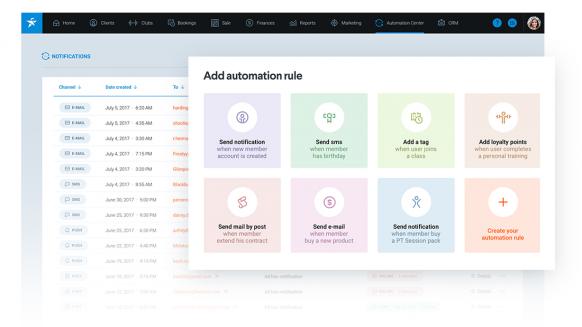
For example, within the PerfectGym swim module, managers can create online registrations for their swim meets all within the back office software. Attendees can then sign up online via the PerfectGym client portal and managers can even schedule reminder emails to be sent to their guests ahead of time. All-in-one swim school management systems can greatly minimize administrative workload, leading to better efficiency and fewer mistakes.
Step 4: Implement Competitive Swim Challenges
On a smaller, individual scale, swim school managers and instructors can set up challenges for their students. These are perfect as they require no extra time needed on the instructor's side, and all students can take part regardless of their ability level.
Competitiveness is important in swimming and sports in general. The true secret of motivation comes from within a swimmer, however constantly looking inward for inspiration can be difficult for a lot of students, which is why competitions can act as powerful fuel for a swim student’s focus and performance.
Swim challenges offer students an external opponent to focus on. Rather than fighting with themselves to do better or push harder, challenges can encourage students to do better than others, all without the high-stress competitive ‘race’ environment. That fact in itself can spur a great surge in students’ swim motivation.
Instructors must ensure the challenge is measurable and trackable for it to work. For instance, having a challenge named Most Dedicated, will be difficult to quantify. On the other hand, the Most Swim Lesson Attendances in 2 Months is binary, making it measurable and therefore easy to determine the winner fairly.
More examples of swim school challenges include:
- Most attendances in a month
- Most assessments passed in 2 months
- Quickest in the pool
Swim assessment grades and awards reward a student’s swimming capability. However, with swim challenges, instructors and managers can reward how hard a student is working on their swimming skills, acknowledging such things about students can greatly push up their swim practice motivation.
In a Nutshell...
To conclude, swim schools can protect their business and future revenue by investing some time and creativity in increasing their students’ swim motivation.
Through understanding how difficult learning how to swim can be, swim instructors will be in a better position to build rapport, give specific praise and constructive feedback individually to students, helping them to form a tangible and achievable goal to work towards.
In addition to this, by strategically grouping students together within a class will help strong swimmers aid the less talented swimmers, giving one student a renewed sense of responsibility and commitment to the sport and the other student more attention, helping them feel supported.
On a school-wide level, you can inject a greater collaborative feeling of being a team by setting up exciting competition which partners your swim school with others in the area. Such as event can encourage students to come together, support one another and motivate them to win.
Lastly, by implementing swim challenges throughout your school you can reward students for their effort, not their skills, making a huge number of students feel more appreciated and positively reinforcing their swim practice motivation.
